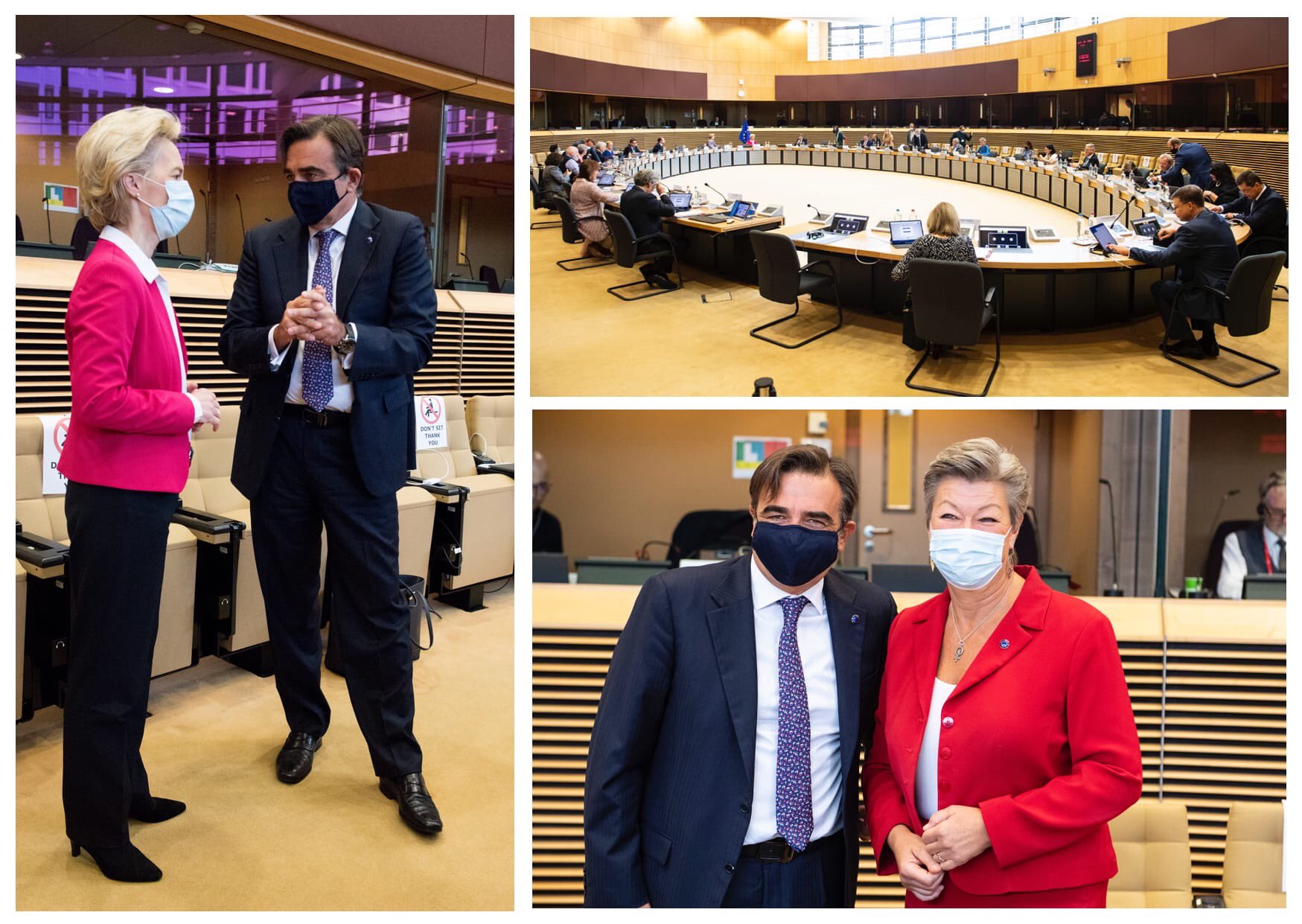
Migration: Brussels pledges stricter deportations but expects more solidarity
Accelerating migration procedures and deporting rejected migrants more effectively are key aspects of the European Commission s migration pact announced on Wednesday, Commission President Ursula von der Leyen and Vice-President Margaritis Schinas told journalists at a joint press briefing in Brussels. The mandatory migrant quotas have been removed from the package, but the Commission expects greater solidarity from member states.
The European Commission s proposal sets out faster procedures for the migration system as a whole, Commission President Ursula von der Leyen said. „It is now time to rise to the challenge to manage migration jointly, with the right balance between solidarity and responsibility,” the Commission President said. Regarding the management of migration, the EC s proposal builds on the different geographical situations and different capabilities of member states, but it also takes into account that pressures at their borders differ, therefore recommending flexible cooperation between member states, Ursula von der Leyen added.
Migration is a European challenge, and all of Europe must do its part.
Stay tuned, we will propose a New Pact on Migration and Asylum later today. #SOTEU #MigrationEU pic.twitter.com/oDhtCETO3S
— European Commission ???????? (@EU_Commission) September 23, 2020
The proposal presented in Brussels would relieve the burden on the countries most affected by migration, such as Greece and Italy, by providing priority support for repatriating the expelled migrants, for instance. Left out of the package, however, are the mandatory admission quotas, which the V4 countries, along with Austria and Slovenia, have consistently rejected since the 2015 influx of migrants. These countries can accept migrants in exceptional situations on a voluntary basis. At the same time, the EC emphasized the importance of solidarity: it wants every member state to participate in a common migration policy in a crisis.
The Commission s Pact on Migration and Asylum, which we are presenting today, offers a fresh start.
We know that we have to build trust between EU countries and citizens confidence that we can manage this as a Union.@vonderleyen on #MigrationEU https://t.co/N9FGbqWJSK
— European Commission ???????? (@EU_Commission) September 23, 2020
The new EU package contains three emergency scenarios, in which member states may provide assistance to each other on a voluntary basis. If migratory pressures increase significantly in a country, it may call for so-called compulsory solidarity. In these cases the member states can either admit or reject the migrants, but the process should not last longer than 8 months. A potential crisis similar to the 2015 migrant surge will trigger an emergency mechanism, which allows fewer options for assistance: the other countries will either take in the new asylum-seekers or admit a certain number of the expelled migrants. If the deportation process proves unsuccessful, then third countries must admit the migrants.
Tags:

